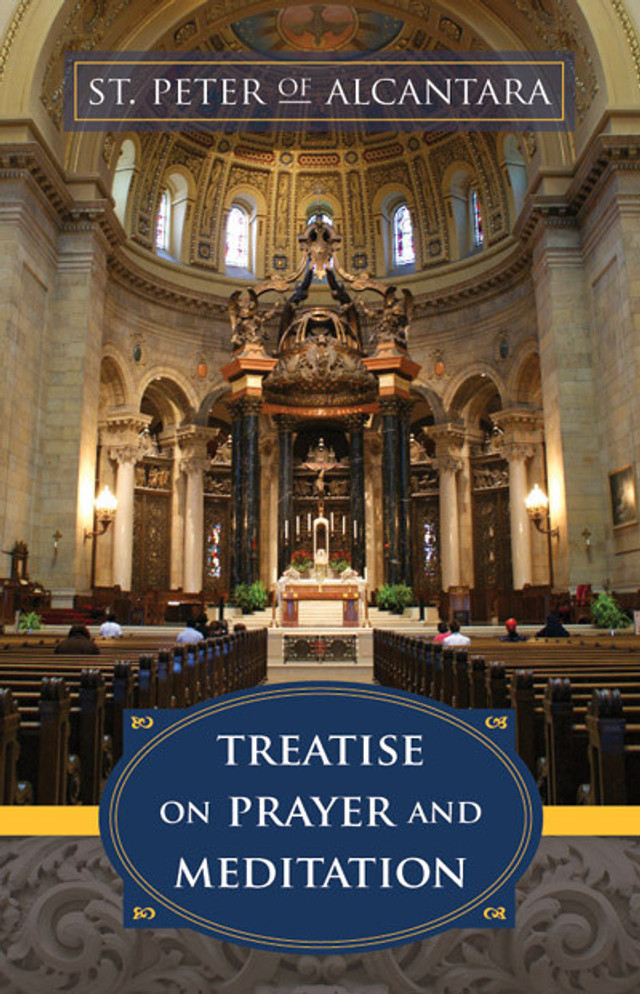In the spiritual life, we all must be faced with our sinfulness. Before we can turn toward the cultivation of virtue, we must first obtain self-knowledge. Follow along with Saint Peter of Alcantara as he guides you through a meditation on sin and self-knowledge.
Today you may occupy yourself with the remembrance of sin and with the knowledge of yourself. The one will show you all the evil there is in you; the other will convince you that you have nothing which is not from God. This is the way to win humility, the mother of all virtues.
Recall Your Sins
Think, in the first place, of the many sins of your past life, especially of those you committed when you knew less of God. If you consider well, you will find them to be more numerous than the hairs of your head (Cf. Psalms 39:13) and that you lived in those days like a pagan who knows not what God is. Go briefly through the Ten Commandments of God and the Seven Capital Sins, and you will find there is not one into which you have not often fallen by action or by word or by thought.
Consider the Benefits of God
In the second place, think of all the benefits of God and of the different periods of your past life, in what fashion you have used them; for of all must you render an account to God. Tell me how have you spent your childhood, and your adolescence, and your youth, and finally all the days of your past life? How have you used the senses of the body and the powers of the soul, which God has given you that you might know and serve Him? How have you used your eyes, if not to gaze upon vanity? And your ears, if not to listen to falsehood? And your tongue, if not in every fashion of oath and slander? And your taste and smell and touch, if not in pleasures and sensual caresses?
How have you profited by the Holy Sacraments, which God has instituted for a remedy? How have you thanked Him for His benefits? How have you corresponded with His inspirations? How have you utilized your health and energy, your natural talents, your material resources, the facilities and opportunities you have had of leading a good life? What interest have you had in your neighbor, whom God has commended to you, and in those works of mercy He has bid you engage in for His sake? What answer will you give in the Day of Account, when God will say to you: “Give an account of your stewardship, and of the goods entrusted to you, for I no longer wish you to administer them?” (Cf. Luke 16:2). O barren tree, all prepared for eternal torments! How will you answer on that day when you must explain all your life and every moment and minute thereof?
Recall the Number of Your Sins
In the third place, think of the sins you have committed and commit every day since the time you opened your eyes to the knowledge of God. You will find that the old Adam (Cf. Romans 6:6) still lives in you in many an old and deep-rooted habit. See how insolent you have been toward God, how ungrateful for His benefits, how rebellious to His inspirations, how slothful in His service. Never do you do anything for Him with promptitude and diligence, nor with the requisite purity of intention, but other motives and worldly interests move you.
Consider, moreover, how hard you are toward your neighbor and compassionate toward yourself, a lover of your own will, of the flesh, of your honor and of your own interests. See how proud you are and ambitious, hot-tempered, overbearing, vain and envious, full of malice, self-indulgent, inconstant, lacking respect, sensual, intent on your own amusements and conversations, on your laughter and idle words. Mark how inconstant you are in your good resolutions, how inconsiderate in your words, how negligent in your work, how weak and irresolute in every grave affair.
Ponder the Gravity of Your Sins
In the fourth place, having considered, in order, the great number of your sins, ponder on their gravity, that you may gauge every aspect of your wretchedness. To this end, you ought first to consider these three circumstances of the sins of your past life, namely: Against whom you have sinned; Why you have sinned; and In what way you have sinned. If you look against whom you have sinned, you will see that you have sinned against God, whose kindness and majesty are infinite, whose benefits to man and whose mercies are more numerous than the sands of the sea. And why have you sinned? For a point of honor, for some bestial pleasure, for some tiny interest, and often for nothing at all, but just from custom and depreciation of God. In what manner have you sinned? With such ease, such boldness, so unscrupulously, so fearlessly, nay, at times, with such readiness and content as if you were sinning against a god of wood, knowing and seeing nothing of what passes in the world. Is this the honor due to so great a Majesty? Is this the gratitude for such great benefits? Is this the price of that Precious Blood shed on the Cross, of those blows and buffets received for you? Wretched [are you] in what you have lost, still more so in what you have done, and most of all if you do not recognize your sorry plight.
Turn Your Mind Toward Your Nothingness
After this, it will be very useful to fix the eyes of your mind on the study of your own nothingness. Of yourself, you hold nothing at all except sin; all the rest comes from God. It is clear that the gifts of Nature and those of grace (which are the greater) are wholly His; to Him belongs the grace of predestination (which is the source of all the other graces), to Him the grace of vocation, to Him concomitant grace [that assists us all the while we are performing a good action], to Him the grace of perseverance, to Him the grace of eternal life. What have you then in which to glory but your nothingness and sin? Rest awhile in the consideration of this nothingness—for this is all you have, the remainder is all God’s—that thus you may see plainly and distinctly what you are and what He is, your poverty and His riches, and how little, in consequence, you should trust in yourself and esteem yourself, and how much you should trust in Him and love Him and glorify yourself in Him.
Ask With a Sincere Heart for Forgiveness
Thinking then over all these points I have mentioned, have of yourself the very lowest esteem possible. Consider yourself as nothing better than a wild reed which bends before every wind, without weight or strength or firmness, unstable and with no sort of solidity. Consider yourself as Lazarus, four days in the tomb, a corpse tainted and horrible, full of worms, so that every passerby holds his nose and closes his eyes before such a sight. Cast yourself at the feet of the Saviour with her who was a public sinner (Cf. Luke 7:37-50); cover yourself with the shame of a woman before her husband whose honor she has betrayed; with great sorrow and repentance of heart ask forgiveness for your wanderings and that, of His infinite goodness and mercy, He may deign to receive you back into His house.
ooo
This article is taken from a chapter in Treatist on Prayer and Meditation by Saint Peter of Alcantara which is available from TAN Books.









